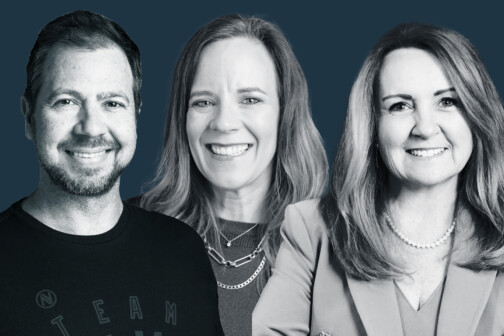 |
| illustration by Douglas Jones |
Jack Lowe Jr. and Don Williams seem unlikely revolutionaries. Lowe is the former CEO of TDIndustries and current board chair, and his soft-spoken manner belies a burning commitment to racial and economic justice. Maybe he inherited that commitment from his dad, who was one of Dallas’ most effective business leaders in the ’60s and ’70s. Williams is the former chairman emeritus of Trammell Crow Company, and a longtime advocate of community empowerment in the southern sector of Dallas. He has built a network of grassroots, religious, and business activists and tackled tough issues such as housing and economic development.
These days, the passions of these men are channeled into what many believe to be an impossible challenge: the transformation of the Dallas Independent School District.
The ideology of the revolution traces its roots to 1984 and the education reforms charted by then-CEO of EDS Ross Perot Sr. and local business leaders such as Tom Luce, Jerry Junkins, and Sandy Kress. The ideological pillars of this brand of education reform are relentless measurements of academic performance, identification and deployment of best practices, a focus on the skills and leadership of school principals, and professional development of educators. On a broad scale, data proves that the pillars work.
So if great advances in education policy happened through the efforts of Dallas business leaders, why are the results in DISD so poor? Lowe and Williams would argue that we have the ideology right, but what Dallas really needs is a community-wide approach and the mobilization of an army of educators and citizens to fight the reform revolution, neighborhood by neighborhood, school by school, across the vast expanse of DISD.
Lowe tackled the leadership challenge inside DISD. First, as a part of the superintendent search committee, he strongly encouraged the hiring of Dr. Michael Hinojosa. Unlike many of his predecessors, Hinojosa is a DISD graduate whose career ambitions begin and end with DISD becoming the best urban school system in the country. Second, Lowe recruited school board candidates who share his reform agenda and helped get them elected. Finally, Lowe earned the trust of his board colleagues and was elected president. He assisted Hinojosa in quickly guiding the board through a strategic planning process focused on the pillars of education reform.
While Lowe pursued the inside game, Williams galvanized the community under the umbrella of the Foundation for Community Empowerment (FCE), which he founded. He recruited Cecilia Edwards and Marcia Page to the ranks of FCE. Both women, who are African-American, formerly held senior management positions at firms like The Boston Consulting Group and Texas Instruments. FCE engaged substantial support from The Boston Consulting Group and Carol Reed and Associates to develop a strategy to engage the entire community in the reform effort. Williams has also been a relentless fund-raiser in recent months, because a revolution costs money.
The inside and outside games merged with the formal announcement of Dallas Achieves, a community-wide effort that will be overseen by a diverse commission of 75 leaders from all walks of life. Williams is one of three co-chairs, along with Arcilia Acosta, CEO of Carcon Industries, and Pettis Norman, CEO of PNI Distribution. True to its ideology, Dallas Achieves will be measurable: The district intends to win the Broad (rhymes with “road”) Prize by 2010, which is awarded each year to the top urban district. Dallas Achieves will rely on best practice deployment in areas like early childhood education, dropout prevention, and parental involvement. These best practices will be funded in large part by wringing waste and expense from central administration and redeploying those resources to the classroom. Finally, principals will receive extensive leadership training and be freed from much of the bureaucracy and regulation that prevents them from managing resources and becoming the “CEOs” of their schools with clear-cut responsibility for results.
This initiative represents a new model of multiethnic, results-oriented coalition-building in Dallas, and the approach is applicable to other issues. This is a revolution that deserves the personal involvement and support of all Dallas leaders.
Phil Ritter is a senior vice president for Texas Instruments. In addition to overseeing TI’s public affairs, Ritter is a trustee of the TI Foundation and serves as chairman of the company’s Constructive Citizenship Program. He is also on the board of the World Affairs Council of Dallas.





